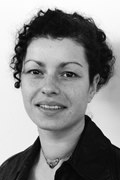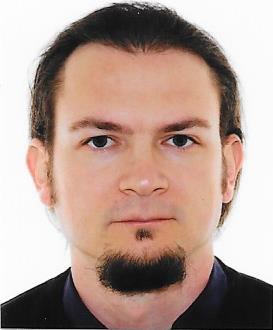Studying at the University of Verona
Here you can find information on the organisational aspects of the Programme, lecture timetables, learning activities and useful contact details for your time at the University, from enrolment to graduation.
Academic calendar
The academic calendar shows the deadlines and scheduled events that are relevant to students, teaching and technical-administrative staff of the University. Public holidays and University closures are also indicated. The academic year normally begins on 1 October each year and ends on 30 September of the following year.
Course calendar
The Academic Calendar sets out the degree programme lecture and exam timetables, as well as the relevant university closure dates..
| Period | From | To |
|---|---|---|
| Sem. 1A | Sep 21, 2020 | Oct 31, 2020 |
| Sem. 1B | Nov 9, 2020 | Jan 9, 2021 |
| Sem. 2A | Feb 15, 2021 | Apr 1, 2021 |
| Sem. 2B | Apr 14, 2021 | May 29, 2021 |
| Session | From | To |
|---|---|---|
| Sessione d'esame invernale | Jan 14, 2021 | Feb 13, 2021 |
| Sessione d'esame estiva | Jun 7, 2021 | Jul 24, 2021 |
| Sessione d'esame autunnale | Aug 23, 2021 | Sep 18, 2021 |
| Session | From | To |
|---|---|---|
| Sessione di laurea estiva | Jul 5, 2021 | Jul 10, 2021 |
| Sessione di laurea autunnale | Nov 8, 2021 | Nov 13, 2021 |
| Sessione di laurea invernale | Mar 28, 2022 | Apr 1, 2022 |
| Period | From | To |
|---|---|---|
| Festa di Ognissanti | Nov 1, 2020 | Nov 1, 2020 |
| Festa dell'Immacolata | Dec 8, 2020 | Dec 8, 2020 |
| Vacanze di Natale | Dec 24, 2020 | Jan 6, 2021 |
| Vacanze di Pasqua | Apr 2, 2021 | Apr 6, 2021 |
| Festa della liberazione | Apr 25, 2021 | Apr 25, 2021 |
| Festa del lavoro | May 1, 2021 | May 1, 2021 |
| Festa del Santo Patrono | May 21, 2021 | May 21, 2021 |
| Festa della Repubblica | Jun 2, 2021 | Jun 2, 2021 |
| Vacanze estive | Aug 9, 2021 | Aug 15, 2021 |
Exam calendar
Exam dates and rounds are managed by the relevant Humanistic Studies Teaching and Student Services Unit.
To view all the exam sessions available, please use the Exam dashboard on ESSE3.
If you forgot your login details or have problems logging in, please contact the relevant IT HelpDesk, or check the login details recovery web page.
Academic staff
 carlo.callegaro@univr.it
carlo.callegaro@univr.it
Study Plan
The Study Plan includes all modules, teaching and learning activities that each student will need to undertake during their time at the University.
Please select your Study Plan based on your enrollment year.
1° Year
| Modules | Credits | TAF | SSD |
|---|
2° Year activated in the A.Y. 2021/2022
| Modules | Credits | TAF | SSD |
|---|
1 module between the following| Modules | Credits | TAF | SSD |
|---|
| Modules | Credits | TAF | SSD |
|---|
1 module between the following| Modules | Credits | TAF | SSD |
|---|
Legend | Type of training activity (TTA)
TAF (Type of Educational Activity) All courses and activities are classified into different types of educational activities, indicated by a letter.
Educational research methods in training contexts (2020/2021)
Teaching code
4S007373
Teacher
Coordinator
Credits
9
Language
Italian
Scientific Disciplinary Sector (SSD)
M-PED/04 - EDUCATIONAL RESEARCH
Period
Sem. 2A, Sem. 2B
Learning outcomes
The course aims to describe the main lines of the transition from research orientations that move in a objectivistic and rationalistic framework to mostly qualitative approaches turned to open and recursive forms of research; the course intends to let students understand the main features of a transformative and ethnographic approach, connecting them to educational contexts. By the end of the course students will be able to: - identify some relevant qualitative research on vocational education and training in the major search engines and in academic sites; - know and understand the review criteria used in the peer review procedures of qualitative research articles; - critically analyse these research works; - know and understand the main features of transformative and ethnographic research methods, linking them to a concrete research process in educational contexts; - design the main elements of a qualitative research work, starting from a real or simulated educational context.
Program
The course aims to describe the main lines of the transition from research orientations that move in a objectivistic and rationalistic framework to mostly qualitative approaches turned to open and recursive forms of research; the course intends to let students understand the main features of a transformative and ethnographic approach, connecting them to educational contexts. By the end of the course students will be able to: - identify some relevant qualitative research on vocational education and training in the major search engines and in academic sites; - know and understand the review criteria used in the peer review procedures of qualitative research articles; - critically analyse these research works; - know and understand the main features of transformative and ethnographic research methods, linking them to a concrete research process in educational contexts; - design the main elements of a qualitative research work, starting from a real or simulated educational context.
SYLLABUS
The course will develop the following thematic cores:
- Quantitative research and qualitative research: from opposition to complementarity?
- the process of doing research: identification of the research question, collection, analysis, and interpretation of data;
- research and training: the formative value of research processes;
- the epistemological horizons of doing ethnographic research on the analysis of educational practices in the training sector;
- approaches and tools of qualitative research for the analysis of training practices: examples;
- the main resources for educational research in the educational field: research centers, journals.
| Author | Title | Publishing house | Year | ISBN | Notes |
|---|---|---|---|---|---|
| Lipari, D. | Dentro la formazione. Etnografia, pratiche, apprendimento | Guerini | 2016 | 9788868960773 | |
| Mario Cardano | La ricerca qualitativa | Il Mulino | 2011 | 978-88-15-14980-0 | |
| Giuseppe Tacconi e Nicoletta Morbioli (a cura di) | Reinventare la scuola. La sfida dell'istruzione degli adulti in Italia (Edizione 1) | Erickson | 2019 | 978-88-590-2041-7 |
Examination Methods
ORAL examination with
• 3 essay questions to assess the acquired knowledge (up to 12 points)
• one presentation of a selected article (up to 8 points)
• one question to assess deep understanding (up to 10 points)
Type D and Type F activities
Modules not yet included
Career prospects
Module/Programme news
News for students
There you will find information, resources and services useful during your time at the University (Student’s exam record, your study plan on ESSE3, Distance Learning courses, university email account, office forms, administrative procedures, etc.). You can log into MyUnivr with your GIA login details: only in this way will you be able to receive notification of all the notices from your teachers and your secretariat via email and also via the Univr app.
Graduation
Documents
| Title | Info File |
|---|---|
|
|
pdf, it, 109 KB, 12/07/24 |
|
|
pdf, it, 112 KB, 14/05/24 |
List of thesis proposals
Student mentoring
Gestione carriere
Linguistic training CLA
Practical information for students
Documents
| Title | Info File |
|---|---|
|
|
pdf, it, 325 KB, 16/07/24 |
|
|
pdf, it, 212 KB, 02/05/23 |
|
|
pdf, it, 131 KB, 02/05/23 |
Stage e Tirocini
Lo/a studente/essa tirocinante curricolare sarà chiamato/a svolgere, presso gli Enti che lo ospitano, attività che prevedono competenze associate alla figura professionale dello Psicologo, in particolare lo Psicologo per la formazione, e nello specifico:
- attività di progettazione, realizzazione e valutazione dell’efficacia di interventi di percorsi formativi, nonché attività volte alla facilitazione dell'apprendimento nel ciclo di vita, in particolare in contesti organizzativi;
- attività che prevedano l’analisi delle relazioni interpersonali, dei contesti organizzativi e delle pratiche lavorative;
- attività che prevedano la gestione di processi organizzativi complessi, per lo sviluppo e la valorizzazione delle persone all'interno delle organizzazioni;
- attività di progettazione, realizzazione e valutazione di interventi psicologici volti all’orientamento scolastico e professionale;
- attività che prevedono l’uso di tecniche e strumenti di analisi delle situazioni e dei contesti, di raccolta di informazioni, e di interpretazione dei risultati, principalmente in relazione ai contesti organizzativi.
Tali attività si svolgono in Aziende ed Enti accreditati presso l’Ateneo. Lo/la studente/essa sarà seguito da un tutor accademico e da un tutor aziendale. Alle attività di tirocinio sono attribuiti n. 9 CFU (pari a 225 ore).
Linee Guida per lo Svolgimento dei Tirocini Curriculari
- Tutte le informazioni in merito agli stage per futuri studenti sono disponibili alla pagina Stage e tirocini.
- Tutte le informazioni in merito agli stage per studenti iscritti sono pubblicate in MyUnivr - come fare per - stage e tirocini.
- Tutte le informazioni in merito agli stage per le aziende sono disponili alla pagina Stage e tirocini per azienze.
Student login and resources
Modalità e sedi di frequenza
La frequenza non è obbligatoria.
Maggiori dettagli in merito all'obbligo di frequenza vengono riportati nel Regolamento del corso di studio disponibile alla voce Regolamenti nel menu Il Corso. Anche se il regolamento non prevede un obbligo specifico, verifica le indicazioni previste dal singolo docente per ciascun insegnamento o per eventuali laboratori e/o tirocinio.
È consentita l'iscrizione a tempo parziale. Per saperne di più consulta la pagina Possibilità di iscrizione Part time.
Le sedi di svolgimento delle lezioni e degli esami sono le seguenti
- Polo Zanotto (vicino si trova il Palazzo di Lettere)
- Palazzo ex Economia
- Polo Santa Marta
- Istituto ex Orsoline
- Palazzo Zorzi (Lungadige Porta Vittoria, 17 - 37129 Verona)
- Chiostro Santa Maria delle Vittorie, Lungadige Porta Vittoria, 41

 +39 045 802 8549
+39 045 802 8549












